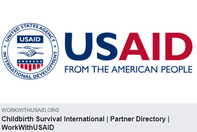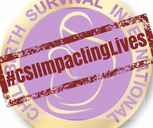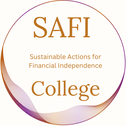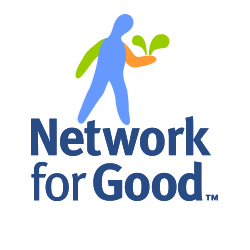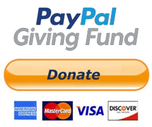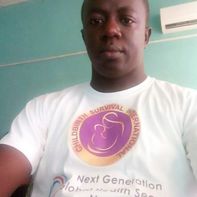 Navigating through the streets of Ibadan and moving along the corridors of Ojo-UI road, I was not only surprised by the different shades and distinct cultural identities of the people I saw, but I was extremely alarmed by the teeming number of young mothers aged 13-17 years on the streets as I moved along the road through the UI-Songho-Mokola business hub of Ibadan State. The observation though not too starkly different from Ghana, sharply contrasted in that, the huge numbers among them begging on the streets alarmed me but I quickly remembered I was in Nigeria, a country with a really huge population. With much interest in maternal and child health, and generally in sexual and reproductive health, I was quickly ushered into a rethinking mode to consider what if these young ladies on the streets got pregnant again?, as some had more than one child. Looking at their living conditions, I wondered how do they cope and how do they meet their pregnancy related health needs? I continued to self-introspect because they constitute a group that can clearly be defined as urban poor but what happens to these teenage mothers from conception to delivery is what struck me the most. While lamenting over these observations, I checked for some facts and was alarmed to know that Nigeria has a maternal mortality ratio of 814 above the global threshold with annual rate of decline being only 1.5%. for which over 2,300 children under 5 years die daily along with 123 women, making Nigeria the second country with the highest under five mortality and maternal mortality rates in the world. Placing blame on who is doing what and who is not doing what to address the problem has its role to play in delaying progress. Each day, innocent women continue to die due to preventable and/or manageable pregnancy and childbirth related complications. It's time to act now. Still alarmed by the figures, I reflected and told myself, “your lamentations should be over, take action.” Being nominated as one of 2017 Next Generation Global Health Security Network mentees and opportunity to take on Senior Program Coordinator role with Childbirth Survival International should not come as a wasted period of mentorship. Under the able mentoring guidance of Tausi Suedi, CEO of Childbirth Survival International, CSI Nigeria is taking the necessary steps, making the decisions that matter, and swimming with the strong tidal waves ‘brighten the corner where you are’ by providing lifesaving kits to pregnant women and mothers in Ibadan, Oyo state to address the situation where infant mortality rate stands as high as 6.9/1,000, maternal mortality rate 261.5/100,000, crude still birth rate 8.5%, and low birth weight rate as high as 17.9%. Read about CSI Nigeria maternal-newborn health initiative. We seek for all hands to support this initiative to save lives of 200 mothers and babies in Oyo State. CSI is working closely with University College Hospital, midwives, and community leaders to address the high maternal mortality rates by implementing clinical and culturally-sensitive educational programs targeting women and adolescent girls – where the highest mortality rates are reported. Please support this lifesaving initiative and donate as little as $7. It cost only $7 per kit. You can take action now. My contribution, our contribution, your contribution to achieving Sustainable Development Goal #3 is now. Let’s take action to save mothers and children. Enough of the talk. By Seth Christopher Appiah #CSINigeria #CSIGhana Senior Program Coordinator
0 Comments
Adolescent girls abroad are forced to drop out of school because of their periods and organizations such as Childbirth Survival International (CSI) are in the frontlines to help girls stay in school. Girl Talk, Girl Power is changing lives and giving girls a chance to get an education. #GirlTalkGirlPower
Boys and girls are taught from early on the importance of acquiring an education. They grow up with big dreams and aspirations, yet many girls, especially in developing countries, miss seeing those dreams come true. For millions of girls the challenges to advance their education begin at puberty through their teenage years. Many girls go through this growth change with little to no guidance or preparation–everything is new, scary, unclear, and downright traumatizing. Do you remember your first period? Were you informed and prepared? Can you imagine not knowing or being prepared for your periods?––it’s what happens to a majority of girls in developing countries. Lack of feminine hygiene products and safe spaces to change increase challenges for girls to go to school or stay in school. Every girl regardless of her zip code or country should have the opportunity to go to school and pursue her dreams and not be limited by a biologically natural monthly female cycle.  On this International Women's Day, there is much to celebrate! The success of the Women's March here in the United States was magnified many times over, joined by women from cities from all over the world. The message? Women--of all races and ethnicities, shapes and sizes, religions, and sexual identities--deserve equal rights, equal pay, and a say in what happens to our bodies. It's unbelievable that in 2017, girls as young as ten to twelve years old are forced into early marriage and motherhood. Today, women and girls still succumb to the very childbirth they are discouraged from preventing with contraception, and/or for which there is insufficient prenatal care. We are still fighting to change cultural practices that celebrate female genital mutilation and cutting (FGM), and it is imperative that we advocate for girls to receive a complete education, so that they may pursue the careers they desire, and the dreams they hold in their hearts. Though we face such challenges, the solidarity exhibited in recent events serves as a beam of hope for women the world over. What can we not achieve when we band together and help one another? On this #IWD2017, we celebrate the steps forward international organizations such as the World Health Organization (WHO) and Childbirth Survival International (CSI) are taking in making our collective voices heard and in advancing health and well-being for women and girls around the globe. In 2016, CSI conducted its first midwifery training course for licensed midwives and community health workers in Tanzania to promote respectful medical care and healthier pregnancies for women. In January 2017--Cervical Cancer Awareness Month, CSI sponsored free gynecological screenings for women in Uganda. Health education for women, girls, and communities remains a priority. Male health workers and leaders have been included in CSI's outreach work, reiterating that the inequality and inability to access women's health care negatively impacts everyone, not just women and girls. Through grassroots efforts like these and continued collaborations across sectors, there's hope for girls to rise and for women to lead. #GirlsRisingWomenLeading With momentum gleaned from the current women's movement, the sky is the limit to what we can achieve. Happy International Women’s Day! By Kimberly Sarvis, CSI Blog Writer |
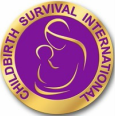
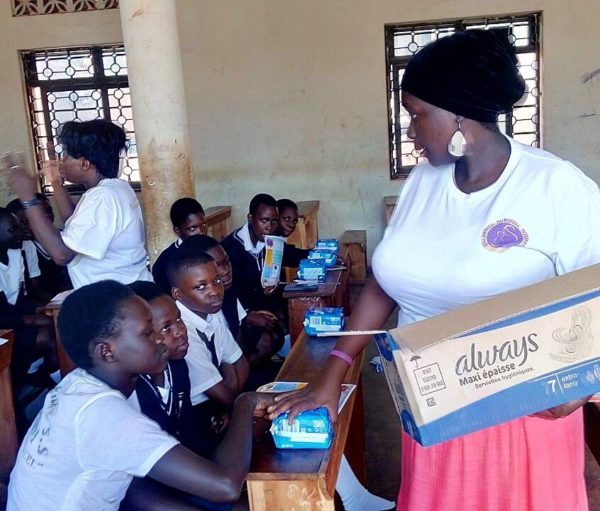
 RSS Feed
RSS Feed
